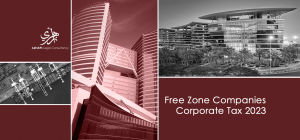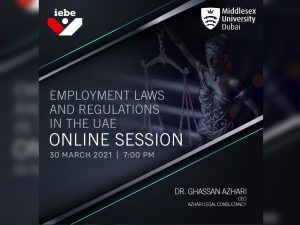This website uses cookies so that we can provide you with the best user experience possible. Cookie information is stored in your browser and performs functions such as recognising you when you return to our website and helping our team to understand which sections of the website you find most interesting and useful.
-

Post Termination Restrictions of a Departing Employee
An important means for Employers to protect their business, confidential information and secrets from departing […]
-

Key Distinctions between DIFC Employment Law and UAE Labour Law
Probation, Notice Period & Termination: Under UAE Labour Law, the employee and employer can agree […]
Recent Posts
- Will Be Free Zone Companies subject to the Corporate Tax?

- Protected: UAE Announced New Labour Law Regulations To Be Effective From February 2022

- SCHOLZ KAUFT STEUERDATEN AUS DUBAI –

STRAFFREIHEIT DURCH STEUERLICHE SELBSTANZEIGE - TODAY, Tuesday 30. March 7.00 PM: ‘Employment Laws and Regulations in UAE’ with Dr. Ghassan Azhari @ GoToMeeting Online

- Part 32 Offer – Early Disposal of Claims at DIFC Courts




